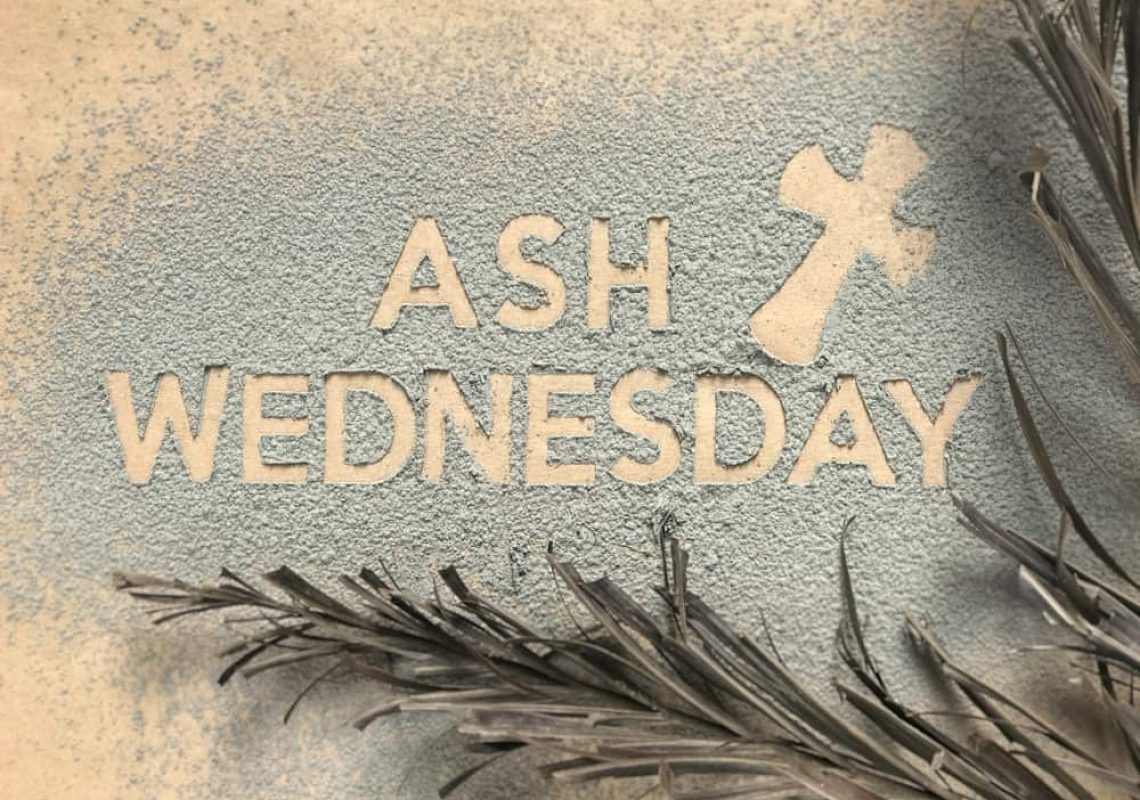This Wednesday is the day Christians around the world celebrate as Ash Wednesday. It is the beginning point of the season of Lent. But what exactly is Ash Wednesday? When I was growing up, our church didn’t do much with Ash Wednesday but I knew many of my Catholic friends did by the mark of the Cross in ashes on their foreheads. I didn’t really understand what it was all about and really even to this day I have not really given great thought into or have observed Ash Wednesday. However, over the past several years my interest in the Church Liturgical calendar has grown as I have seen how the various holidays and special days provide a wonderful structure and framework for experiencing God’s love and presence in my life. So this year, I want to make a better attempt at observing Ash Wednesday and I invite you to join me.
History of Lent and Ash Wednesday
To some reading this, this may be old news but for me and many others I hope this is an interesting refresher into what Ash Wednesday is all about. Note, I am no expert but hopefully am capturing some of the key elements!
Though there are no exact documented starting points to Ash Wednesday and Lent, there are writings of early Christian leaders like Irenaeus(130-202 AD) and Athanasius (293-373 AD) discussing the observance of Lent. Lent was formalized at the First Council of Nicaea in 325 AD. Who knows, it may be possible the early church also began this observance. I found it harder to pinpoint a starting point for Ash Wednesday but it seems to have started early during the Roman empire but became more institutionalized in the 10th or 11th centuries. The Ashes represent death and repentance. They help us to ponder our own spiritual condition, our mortality, and our complete need for the good news of Jesus to save us from our condition.
It is intriguing to think we have an opportunity to join in the spiritual practice that our ancestors in Christ have been celebrating for a very long time.
How to Observe Ash Wednesday?
Ash Wednesday affords us the opportunity to prepare our hearts to enter into the Lenten Season. It is a day we can take some time to reflect on our sinful condition and our mortality. In this reflection we can come to understand our need for a Savior because without a Savior we are hopelessly stuck in a life of pain and brokenness that leads to death. We can also come to understand how we have maybe taken for granted the gift of life we have received in Jesus and have chased after or been distracted by the things of this world. Ash Wednesday can be one of those spiritual markers in our lives where we can do some self examination, repenting of our sins and wayward choices, and surrender in denial of self to the love and grace of our Heavenly Father.
Practice
So what would be some practical ways to observe Ash Wednesday?
For some, it will involve attending a service at church. The service may involve a short sermon, some responsive readings and with periods of silence interspersed through the service all from a focus on confession and repentance. It may culminate in practice of the priest or pastor placed ashes in the form of a cross on your forehead and quoting a passage something like this:
“Remember that you are dust and to dust you shall return,” (Genesis 3:19), or “Repent, and believe the gospel” (Mark 1:15).
Attendees leave the church in silent reflection.
If you cannot attend a service, setting aside a few moments of quiet prayer and reflection is a great way to observe Ash Wednesday. One idea would be to follow an Ash Wednesday liturgy that is used in a worship service for your own private devotion. Here is a link on the United Methodist Church website as an example. https://www.umcdiscipleship.org/resources/a-service-of-worship-for-ash-wednesday.
Another idea would be to spend some time in silence and reflect on these questions:
- Imagine your life without God, without Jesus’ life, death, and resurrection, without the presence of the Holy Spirit living in you? How would your life be different?
- With a fresh awareness of the hopelessness of point one, what has Jesus meant to you and your life, your family, your community?
- Is there something that God may be calling you to die to? Is there something that has garnered your attention that you need to let go of in order to experience your relationship with God more fully? Take some time and confess these to Jesus.
After these questions, take a few moments and rest in the love that God offered you through Christ. Or maybe for the first time, place your life and faith in Jesus Christ who “loved us and gave Himself for us.” (Galatians 2:20).
Thanks be to God for His inexpressible gift! (2 Corinthians 9:15)







